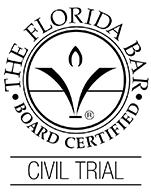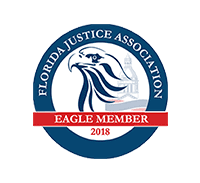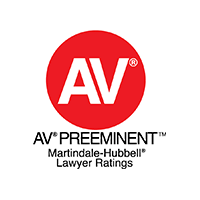Workers’ compensation can be confusing, but trying to figure out who and what is covered can be even more daunting. Fortunately, the Lakeland workers’ compensation lawyers at Dismuke Law can help. We can help you file your initial application, avoid denials and delays in your benefits, and appeal denials that are keeping you from the benefits you are owed.
Each state regulates its workers’ compensation program, so the rules change depending on your location. In Florida, Dismuke Law understands how the insurance program works and what regulations apply. We can help you navigate the entire process to seek the benefits you deserve. “Ask Dave” to get concise answers to your questions.
Our Attorneys Understand Workers’ Compensation in Florida
In Florida, workers’ compensation is regulated by the Division of Workers’ Compensation (DWC). The division falls under the Department of Financial Services (DFS).
Most people think that workers’ compensation provides medical coverage only. Still, more benefits are available, such as:
- Compensation for temporary disability
- Recovery of lost wages due to injury
- Death benefits for surviving family members
Medical Coverage for Injured Workers
You must use an employer-approved doctor when you receive medical coverage under workers’ compensation. You may also receive treatment from your regular physician, but this may not be covered under your employer’s insurance company, which funds your workers’ compensation benefits. Per the DWC, some forms of medical coverage include:
- Appointments and treatment from an approved doctor
- Mileage reimbursement for medical appointments
- All diagnostic testing related to your injuries
- Hospital expenses
- All prescribed medications
- Prosthetics and other prescribed medical devices
- Physical therapy
- Home care when necessary
The overall purpose of workers’ compensation insurance is to permit injured workers time after an injury to recover and return to work. There are also provisions for longer-term benefits for more severe injuries.
If you are still determining if you are getting all the help you deserve, consulting with a workers’ compensation lawyer in Lakeland, FL might be helpful. Our lawyers can ensure you seek the benefits you deserve or help you if you face a denial.
Choose Dismuke Law for Legal Representation in Central Florida
If you suffered a catastrophic injury in a workplace accident, you don’t have time to sort through denials, delays, and unpaid benefits. You are depending on your employer’s insurance company to keep you afloat while you rest and recover from your injuries. We want to make sure you don’t suffer financial hardship because of mistakes in the application process. Plus, if a third party’s negligence caused your injury, we want to pursue them for additional compensation on your behalf.
At Dismuke Law, you can rest assured that our board-certified civil trial attorneys have the skill and experience required to navigate any hang-ups in your case. Dave Dismuke, our founding attorney, is a specialist in civil trial law who has 18 years of legal experience and several commendations to his name.
With representation of this caliber, our clients enjoy peace of mind during the legal process. While you are recovering, we are fighting. We will do everything legally in our power to obtain the benefits you deserve, so you can focus on what matters most.
Determining Eligibility for Workers’ Comp Benefits
Each state regulates its own workers’ compensation rules. However, the eligibility requirements are all similar. They include:
- You must be employed by the company (not a contractor).
- The employer must have compensation insurance in place.
- You must have sustained a workplace injury or illness.
- You must meet state requirements for reporting, including injury reports and compensation claims.
Your employer may have a specified process for reporting accidents and filing compensation claims. If they do not, our attorneys can explain the process for filing a claim.
Understanding Your Rights Under Workers’ Compensation
Your employer should display signs about workers’ compensation in a prominent area, such as an employee break room. They should maintain all necessary forms to file a claim in case of a covered injury. Under workers’ compensation laws, you have the right to:
- Notify your employer if you sustain an on-the-job injury
- Receive compensation benefits for medical costs, lost wages, and other covered expenses
- Obtain a second opinion on your medical condition
- Appeal any claim that is denied
You also have the right to contact a Lakeland workers’ compensation attorney. If you hire our team, we can provide advice and guide you through the process. It can give you peace of mind knowing that you have a legal representative who will protect your rights under the law.
Can You Sue Your Employer in Lakeland, FL?
In some cases, you can file a lawsuit for a workplace accident. However, those are the rare exceptions. Suppose workers’ compensation insurance is in place and pays for your medical expenses and other benefits according to the state’s guidelines. In that case, you cannot file a lawsuit against your employer.
Suppose your injuries were caused by or contributed to by a third party, such as an equipment manufacturer. In that case, you might have the right to sue that third party. Suppose you have questions about whether you can file a personal injury lawsuit. In that case, you will find it helpful to consult with a personal injury or workers’ compensation lawyer.
What Happens When a Workers’ Comp Claim Is Denied?
A workers’ compensation claim may be denied as with any other insurance claim. In many cases, you can quickly correct the reason for a denial. Some common reasons for denial include:
- The worker quit the job before filing the claim.
- There might be evidence that the injury did not occur at work.
- The paperwork was not filed promptly.
- The injury does not meet guidelines set by the state.
You can appeal the decision if you receive a denial of claim notification. The steps for appealing should be outlined within the letter. At this stage, contacting a workers’ compensation lawyer can help you file your appeal request.
Rating Classifications Have Different Benefits
Florida Statutes § 440.15 outlines disability ratings for workers’ compensation. Depending on your rating level, you can seek a different degree of financial assistance. Your rating level is based on the severity of your injuries and the length of time your working ability is affected.
- Temporary partial disability (TPD): When you can return to your job but can only perform a portion of your responsibilities, you may be assigned a rating of TPD. This rating is based on your ability to earn at least 80 percent of your previous wage.
- Temporary total disability (TTD): When you cannot return to work for more than seven days but are expected to return within six months, you may be assigned the rating of TTD. This provides 66 ⅔ percent of regular wages after seven days. The waiting period might be waived with notice from an approved doctor stating that your disability will last over 21 days. With a TTD rating, you may qualify to receive up to 80 percent of your lost wages, but only for as long as six months.
- Impairment income benefits (IIB): If the doctor determines that you will improve no further, you will be declared at Maximum Medical Improvement (MMI). The classification means that you are not expected to regain the ability to perform your job without restrictions or adjustments for your disability. You may be eligible to collect partial disability under IIB.
- Permanent total disability (PTD): Suppose you are at MMI and it is medically determined that you will be unable to return to work. In that case, you might receive a PTD rating. These payments might come as a lump sum or in installments.
Contact a Workers’ Compensation Claim Attorney in Lakeland, FL
It can be helpful to have the advice of an attorney from Dismuke Law to maximize your workers’ compensation claim. When you “Ask Dave,” you will receive answers to your questions and usable advice. Contact our workers’ compensation team for solutions.


![cftla-member[2]](https://www.1800askdave.com/wp-content/uploads/2022/03/cftla-member2.png)
![cftla-member[3]](https://www.1800askdave.com/wp-content/uploads/2022/03/cftla-member3.png)










